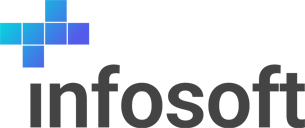There is no denying that the application of artificial intelligence transforms human behavior like never before. But contrary to conventional belief, a job in AI is much more than assimilating data from diverse sources.
Often what we imply as AI could be a component of AI. Machine Learning, for example, is one component of AI. While Python is a general-purpose dynamic programming language, Java is a static type, object-oriented, and R is used in statistical analysis, but not one is synonymous with AI. AI needs a consortium of purpose-driven software and hardware to instruct, for example, machine learning algorithms to get going. In a larger sense, that’s how AI drives data-led transformation for diverse businesses worldwide.
Now that it’s at the wild west phase, AI could be a great platform to explore. If you are really passionate and want to transform business processes and solve fundamental pain points through technology, AI is the name of the game. But succeeding with AI needs more reasons than one or two. Not just mathematics or computing, you will need need a healthy mix of soft skills and creativity to sail through the AI ocean.
Here is a list of five hard and soft skills for building and growing your career with AI.
Mathematical Skill
Mathematics has to bloom fully for AI magic to happen. The mathematical concepts can successfully mimic human behavior and are behind thinking machines. It enables a concrete structure where a set of arguments lead to a final solution.
A compact quantitative background with a solid statistical understanding can go long. The recommendation chart ranks high in concepts like linear algebra, calculus, probability, multivariate calculus, optimization, differential equations, and linear and higher-order regression.
Computing Skill
Mastery of specific programming languages is essential to work in the AI domain. The top 10 AI programming languages are Python, Java, Julia, Haskell, LISP, R, C++, Prolog, and Scala.
Python is the most popular and most accessible to learn and use among them. Python’s popularity stems from its clean visual layout makes it simple to code, organize and analyze. R is popular too. It can crunch vast numbers of data in quickly and acts great for data modeling.
Java, the classical big daddy of programming, remains relevant with emerging technologies like AI. Java helps with gaining the basics of traditional algorithms. Due to its legacy, Java has a wealth of learning materials and use cases available with particular reference to machine learning, neural networks, automatic programming, NLP, rule-based systems, etc. They are handy for newbies in garnering theoretical background and others as reference checks and cross-skilling.
One of the most loved and used by programmers worldwide, Java is widely applied in genetic programming, search algorithms, automatic programming, artificial neural networks, multi-robot systems, and machine learning solutions.
Business Skill
Like any other technology or tool, the success of AI depends on human skills and capabilities. The human side of the world – skills in areas that automation, analytics, or machines can’t do so well – will always take precedence over robotic, mechanical intelligence. The softer skills will remain as critical as in the previous centuries.
With this in mind, employers keep looking for precious soft skills like creativity, analytical thinking, negotiation, emotional intelligence, leadership, interpersonal communication, growth mindset, and team management in employees like you.
Innovation Centricity
Innovation as a skill is vital to ensure AI products and services can achieve more with less. You are expected to have a curious mind with the ability to think fresh and unconventional.
Because process excellence and mechanism can’t tackle stubborn and complex bottlenecks without innovation centricity, such as inventing machines to determine their scopes and finding faster highways toward fulfillment, innovation acts as the new holy grail of modern business philosophy.
Developer Skill
Logic, critical thinking, coding, and algorithms are skills for developers to succeed in a workplace. Technical capabilities like operating multiple software programs, creating new applications, and configuring a bunch of hardware can help you stand out from the crowd.
A genuine interest in programming languages, mathematics, statistics, probability, database knowledge, data structures and algorithms, operating systems, software frameworks, and cloud platforms can create doors of opportunities.
Being responsible
You are expected to know the “responsible AI” principles and practices. AI might be a gift to mankind, but 58% of managers also identified it as the most significant potential cause of unintended consequences.
As AI decisions are increasingly influencing and impacting people’s lives at scale, you must conform to the best sustainability practices and infuse ethical principles into practices (broadly, fairness, reliability, safety, privacy, security, inclusiveness, transparency, and accountability. Source: Microsoft)




